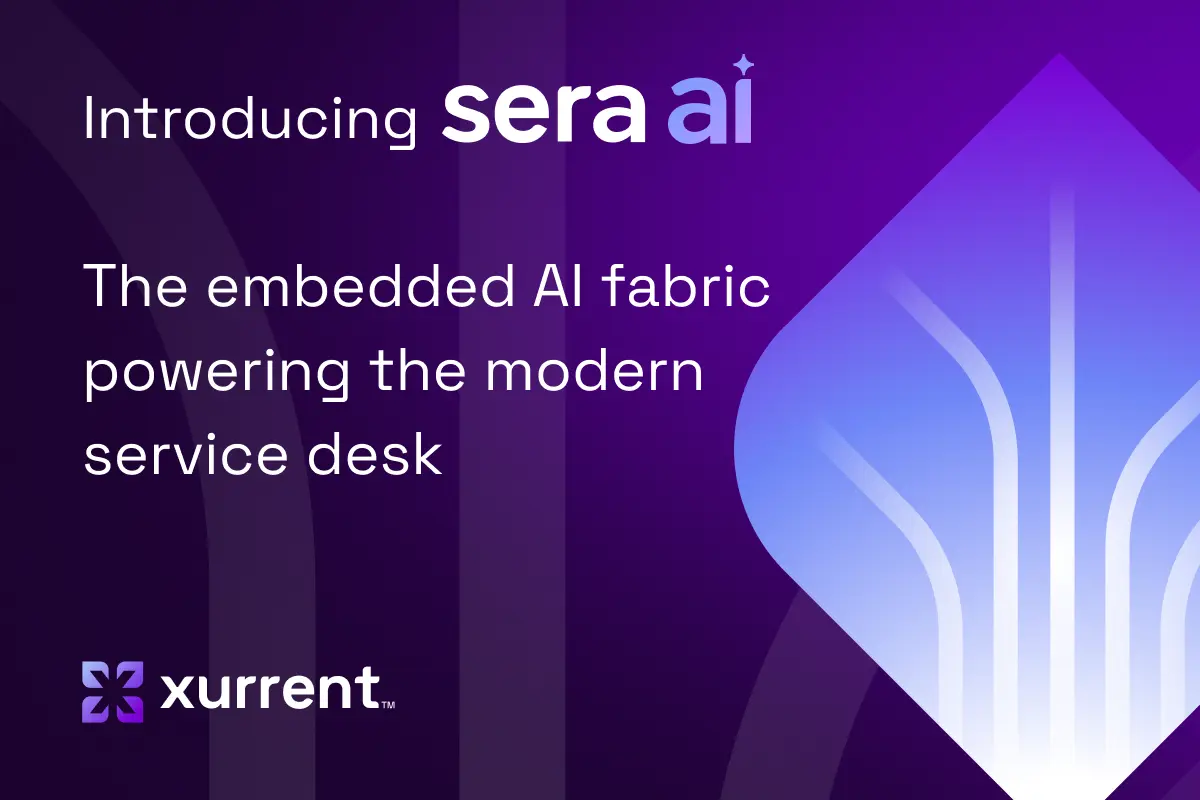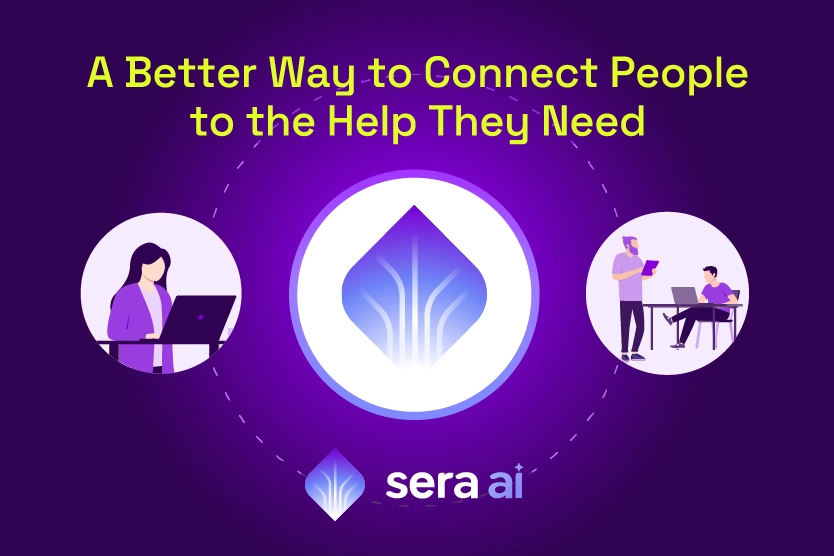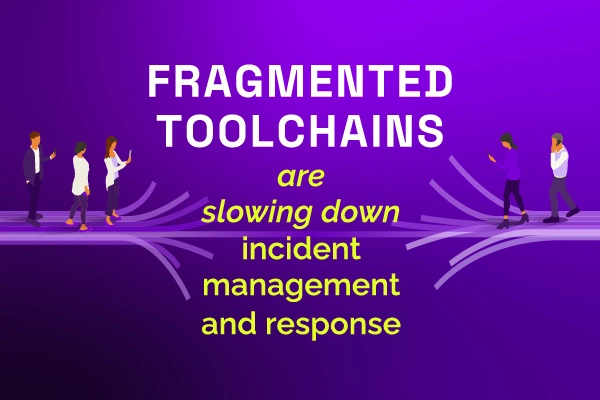The future of the IT help desk Is AI in 2025

Introduction: The Evolution of AI in IT Help Desks
Two years ago, if you mentioned AI in IT help desks, you’d get two reactions, eye rolls from IT professionals and wild optimism from executives who believed AI would solve everything overnight. The reality? AI in 2023 was like a well-meaning intern, enthusiastic but often in over its head. It could classify tickets, sure, but heaven help you if your problem was not something it had seen before.
Fast forward to 2025, and AI is no longer just a shiny new toy, it is the backbone of IT support. But this transformation did not happen overnight. It took substantial improvements in AI’s ability to understand user intent, utilize historical data, process natural language, and integrate seamlessly with existing ITSM platforms to reach where it is today.
This blog explores how AI has transformed IT help desks, addressing past concerns and paving the way for a future where IT teams focus on high-value tasks rather than drowning in repetitive ticket responses.
What is an AI Help Desk?
An AI Help Desk is an IT help desk elevated by automation, intelligence, and efficiency through the use of AI-powered bots. These bots manage a large volume of support tickets simultaneously, allowing human support teams to focus on more complex issues. This integration of AI improves service quality by providing personalized support and maintaining consistency in responses. Instead of relying solely on human agents for every minor request, AI-driven systems leverage machine learning, automation, and natural language processing (NLP) to handle tickets, resolve common issues, and even detect user frustration in real-time.
How does it differ from traditional IT help desks?
Traditional IT help desks are often slow, reactive, and expensive to operate. Manually handling a help desk ticket costs an average of $22 per interaction. AI changes the game, not by replacing people, but by optimizing the systems around them and assisting with complex issues that require human expertise.
Even without direct action rights, AI improves speed and accuracy across the board. It classifies tickets in real time, routes them intelligently, and resolves known issues where permissions allow. Studies show that up to 22 percent of service desk tickets can be resolved at near-zero cost through automation (BMC, 2020).
Live agents play a crucial role in handling complex issues that AI cannot fully resolve. AI can detect these challenging problems and seamlessly escalate them to live agents, ensuring that inquiries requiring human judgment are addressed effectively.
For teams willing to grant AI limited execution privileges, the time savings are even more significant. Atera reports that AI can reduce response times from over seven hours to as little as three seconds.
Generative AI also plays a critical role in reducing overhead. It creates request summaries, updates knowledge base articles, and supports agents by reducing back-and-forth. Companies adopting these capabilities have reported resolution time improvements of up to 75 percent, with stronger alignment between IT teams and end users.
Modern ITSM platforms further enhance self-service by integrating sentiment analysis. AI can flag user frustration based on tone and language, prompting intervention at the right moment instead of relying on delayed escalation.
The AI Revolution: How Help Desks Have Changed in Two Years
AI-Powered Ticket Classification & Routing
30-40% of tickets are incorrectly routed when done manually, highlighting AI’s potential to significantly improve accuracy and efficiency through intelligent routing. AI ensures that support tickets are directed to the right agent quickly, reducing delays and enhancing overall efficiency. Rather than waiting in a queue for an IT agent to triage an issue, AI automates the process in real time, assigning requests to the appropriate personnel with precision.
AI-Generated Request Summaries
AI automatically generates concise summaries for every request by analyzing past interactions, significantly reducing the time IT professionals spend deciphering lengthy tickets. With thousands of summaries created per week for large organizations, the impact on overall efficiency is undeniable. By removing unnecessary back-and-forth between employees and IT teams, AI allows organizations to focus on rapid problem resolution instead of clarification delays.
AI-Driven Automation & Follow-ups
One of AI’s most impactful contributions to IT help desks is its ability to automate tasks and ensure tickets do not remain stagnant. AI proactively nudges users to provide missing details, reducing lengthy email threads and inefficient ticket handling. Organizations leveraging AI-driven automation have seen a dramatic 75% reduction in resolution times, freeing IT teams to focus on complex challenges.
Additionally, AI Service Desks utilize proactive notifications to autonomously execute tasks for employees, enhancing the overall employee experience by providing timely information and support without requiring human intervention.
An AI Service Desk can now handle follow-ups automatically, reducing delays.
Mood Detection & Sentiment Analysis
AI tools now analyze user frustration through tone detection, allowing IT teams to intervene faster. Studies show that sentiment-aware AI leads to quicker resolutions and improved customer satisfaction rates. Organizations that integrate sentiment analysis report increased first-contact resolution rates by 35%, as users feel their concerns are understood and addressed more effectively. However, the human touch remains essential in complex situations, ensuring that nuanced and intricate issues are addressed effectively.
The Future: AI-Driven ITSM with Xurrent
As AI continues to evolve, ITSM platforms like Xurrent are making IT operations and service management more intuitive and user-friendly. Traditional ITSM solutions often required lengthy deployments, but Xurrent enables ITSM implementation in just four weeks or less, compared to months with legacy platforms. The integration of AI-powered ITSM across multiple functions, including HR, Sales, and Finance, ensures seamless cross-collaboration, making IT support a more cohesive function within organizations.
How AI Will Continue to Reshape IT Help Desks Beyond 2025
The Shift Towards Autonomous IT Support
By 2025, 80% of customer interactions will be handled by AI agents without human intervention (Gartner). AI-driven ITSM platforms are advancing to a point where most employee requests—ranging from password resets to software troubleshooting—will be resolved through AI alone. This shift will reduce dependency on IT personnel for routine tasks, freeing them up for more strategic initiatives.
Enhanced Self-Service Portals for Employees
Self-service portals powered by AI and virtual agents are projected to enable employees to resolve 60% of IT issues on their own. AI-driven chatbots, predictive diagnostics, and guided troubleshooting workflows will significantly reduce IT workload by empowering employees with the tools they need to resolve technical issues independently.
AI-Driven Analytics for Workflow Optimization
AI-driven insights continuously monitor ITSM performance, proactively identifying bottlenecks and recommending process optimizations. Predictive analytics will play a critical role in IT help desks, reducing IT downtime by 40% by identifying and addressing potential failures before they escalate.
The Convergence of AI and IoT in ITSM
AI-powered bots will integrate with IoT (Internet of Things) devices for real-time IT monitoring and issue resolution. AI will analyze vast amounts of IoT-generated data to detect patterns and predict potential IT failures before they occur. This proactive approach will allow businesses to address infrastructure issues before they impact operations, improving business continuity.
AI as the New Standard in IT Support
Artificial intelligence is no longer a supplementary tool—it has become the main player in IT support. Businesses that embrace AI-driven ITSM solutions now will position themselves ahead of the curve, reaping the benefits of increased efficiency, reduced operational costs, and enhanced security.
Chatbot Service Desks and virtual assistants are making IT support more efficient.
Six Reasons Xurrent is Leading the AI IT Support Revolution
While many ITSM providers are still talking about AI, Xurrent has already built it in with an AI copilot that enhances help desk operations by automating tasks, enhancing agent efficiency, and enabling seamless user interactions. Some platforms promise AI features “coming soon,” but at this rate, they might as well be announcing flying cars. Meanwhile, Xurrent is delivering next-generation AI capabilities today, not as a future roadmap item but as a fully operational reality.
1. AI That’s Built In, Not Bolted On
Most platforms treat AI like a luxury upgrade. Xurrent does not.
Over the past year, AI has been embedded deeply into the core of the platform. It is not an add-on, not a separate module, and not something you have to pay extra to unlock.
This is AI as infrastructure. Every feature it powers—from ticket classification to follow-ups and sentiment detection—has been designed to work out of the box, for every customer, on every plan.
By making AI universally available, Xurrent ensures that operational efficiency scales across the entire support workflow, not just for those with the largest budgets.
2. Implementation Without the Long Wait
Traditional ITSM solutions take months to deploy, often leading to additional costs. Xurrent cuts that timeline to just four weeks or less, getting teams up and running faster with minimal disruption.
3. AI That Goes Beyond IT
IT does not operate in isolation. That is why Xurrent integrates AI-powered ITSM across HR, Sales, Finance, etc., ensuring cross-functional collaboration and streamlining support operations, making IT a strategic enabler for the entire organization.
4. AI That Reads the Room
Most AI can tell you someone is frustrated after five angry emails. Xurrent predicts frustration before it escalates, allowing IT teams to step in early and prevent small issues from becoming major problems without requiring extensive human intervention.
5. Security You Can Trust
Xurrent takes a ground-up approach to security, maniacally focused on the protection of customer data. SOC 2 Type II, GDPR, HIPAA, and C5 compliance are already in place. This allows teams to operate with confidence and maintain trust at scale.
The real advantage lies in control.
With Bring Your Own Key (BYOK), customers encrypt their data using their own AWS-managed keys. They define access policies, monitor usage in real time, and revoke keys instantly. Encrypted data becomes inaccessible the moment access is withdrawn.
All data is encrypted at rest and in transit. Customer environments are isolated by design. Real-time threat detection and secure development practices ensure that security operates quietly in the background without slowing anything down.
Read how Xurrent manages AI security risks
Explore BYOK and C5 Compliance
6. AI That Works With You, Not Instead of You
Xurrent’s AI is not here to replace IT professionals; it is here to amplify them with proactive and contextual agent assistance. By learning from your best support staff, it enhances expertise rather than automating people out of existence.
While others are still figuring out AI, Xurrent is already putting it to work, delivering practical, powerful, and proven AI-driven IT support today.
{{whitepaper_dl}}
Final Thoughts: The Future is Now
AI has officially graduated from being an IT help desk experiment to being the industry standard. Companies that embrace AI-powered ITSM solutions today will lead the pack in efficiency, cost savings, and customer satisfaction.
So, the real question is not whether AI will transform IT support, but rather: Are you ready to let it?
Xurrent is redefining AI IT Support—book a demo to experience the future of IT Help Desks.


Xurrent named a Market Leader in Research In Action’s Vendor Selection Matrix™ for IT & Enterprise Service Management Solutions
Xurrent earns #1 rankings in customer satisfaction, price vs value, and recommendation index in Research In Action's global ITSM/ESM Vendor Selection Matrix report.




